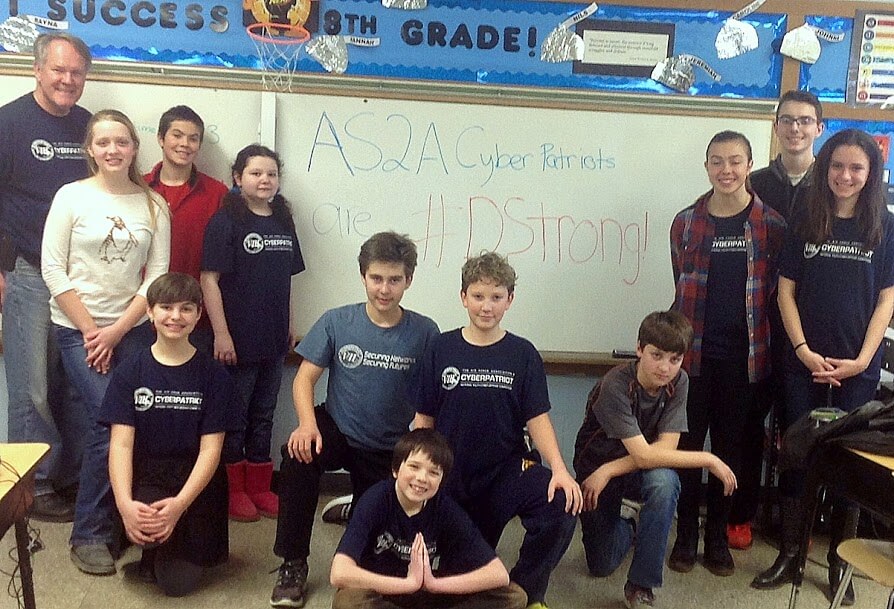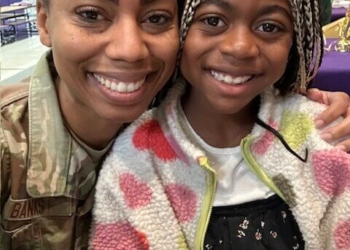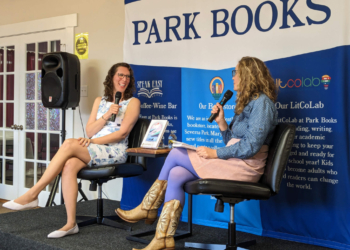In the next five years, experts predict a shortage of nearly 2 million cybersecurity professionals in the U.S. CyberPatriot (CP), a national youth education program, hopes to fill this gap by recruiting and engaging future leaders.
The CP program, created by the Air Force Association in 2009, inspires K-12 students to pursue cybersecurity and STEM fields by helping develop technical skills, expanding critical thinking, and preparing for the challenges of the future.
Mike Cullen, an Air Force veteran and Rhode Island-based STEM educator, says the country is facing burgeoning, powerful, and persistent threats to our digital infrastructure. At the same time, Cullen stresses that there is a huge unmet demand for talent to counter these threats.
The CP program plans to address these challenges through a variety of educational initiatives, including camps, literature series, and educational models. The program is best known for the National Youth Cyber Defense Competition, the nation’s largest such competition that puts high school and middle school students in charge of securing virtual networks.

“This competition brings an important brain sport to the attention of schools and culture with little understanding of the opportunities,” Cullen said. As part of the competition, students break into teams and race to secure virtual networks. In addition to the hard skills of network security and digital infrastructure, teams must also foster their soft skills, including teamwork.
According to the Air Force Association’s website, nearly 25,000 students from across the country have participated in the competition since its inception. Nearly 60% of CP alumni go on to major in cybersecurity or computer science in college and 82% of program graduates were working in the field post-graduation.
Teens RJ White and Olivia Ruggiero, both of Rhode Island, praise the program’s curriculum and their role in a competition that provides them with technical and life skills.
RJ, a high school senior who will attend Worchester Polytechnic Institute next year, says the program helped him better navigate how computers work and inspired his academic aspirations.
“CP opened my eyes to how vulnerable computers and operating systems are, making me rethink how I work online from passwords and security settings to the dangers of simply opening an email or clicking a link,” he said.
White says that he’s learned that no computer can ever be 100% secure.
“As technology and the internet evolve, so are threats,” he said.

Olivia says that the program has helped her with problem-solving, independent thinking, and leadership skills. While in middle school, she served as CP captain of teams at both schools.
“When switching schools, I went from being captain of an all-female team to an all-male team. Although I had seniority, I had to prove myself in a male-dominated program. This was difficult, [but at the same time], I received support and praise and feel I will be capable of handling similar situations later in life,” Olivia said.
Read: Kirkland AFB teen named National Military Youth of the Year.
Olivia, currently a junior in high school, plans to major in pre-law. And though her focus isn’t STEM, she said her experiences with CP helped her navigate the International Baccalaureate (IB) Programme. She credits CP with helping her apply critical thinking skills to her experiences and the world around her.
Cullen says CP is imperative in getting the next generation of cyber professionals ready to meet tomorrow’s challenges.
“As threats rapidly evolve and become more consequential, it’s essential to keep building a diverse talent pool. The resultant out-of-the-box thinking is no longer a luxury, but an operational imperative,” he concluded.
This year’s competition will be held virtually March 18-22. Registration for the 2021-22 competition will open in April. For more information about CyberPatriot, visit https://www.uscyberpatriot.org.







































